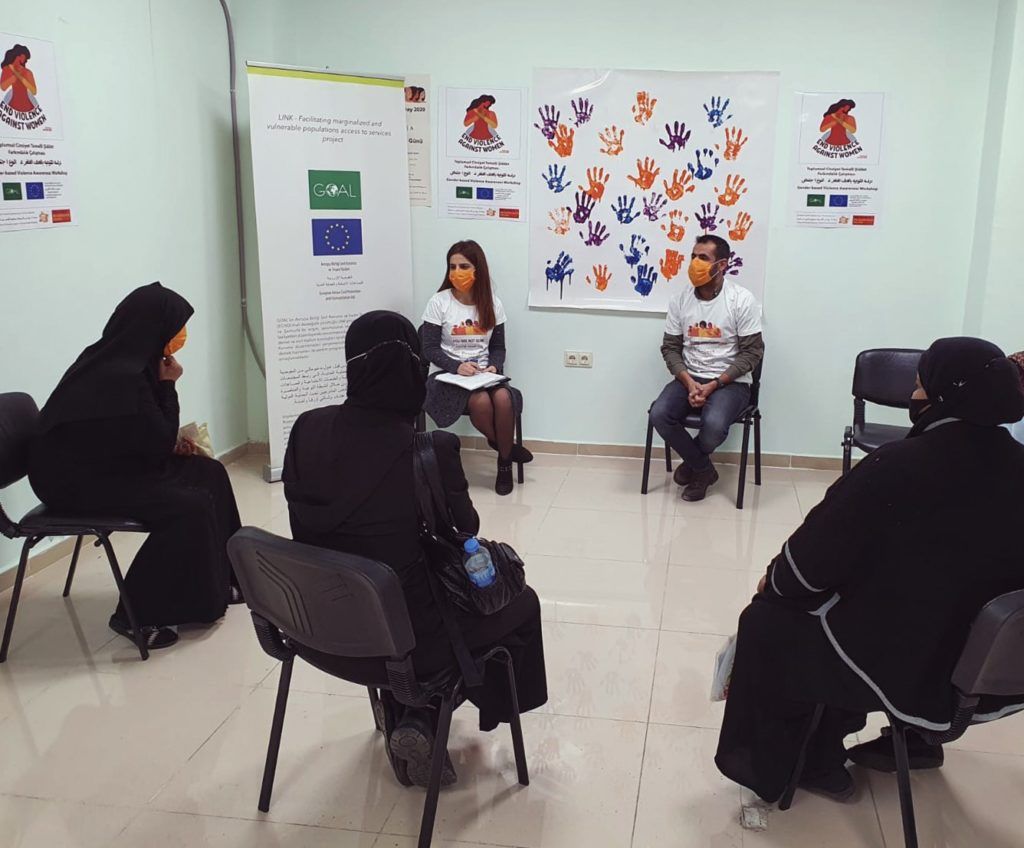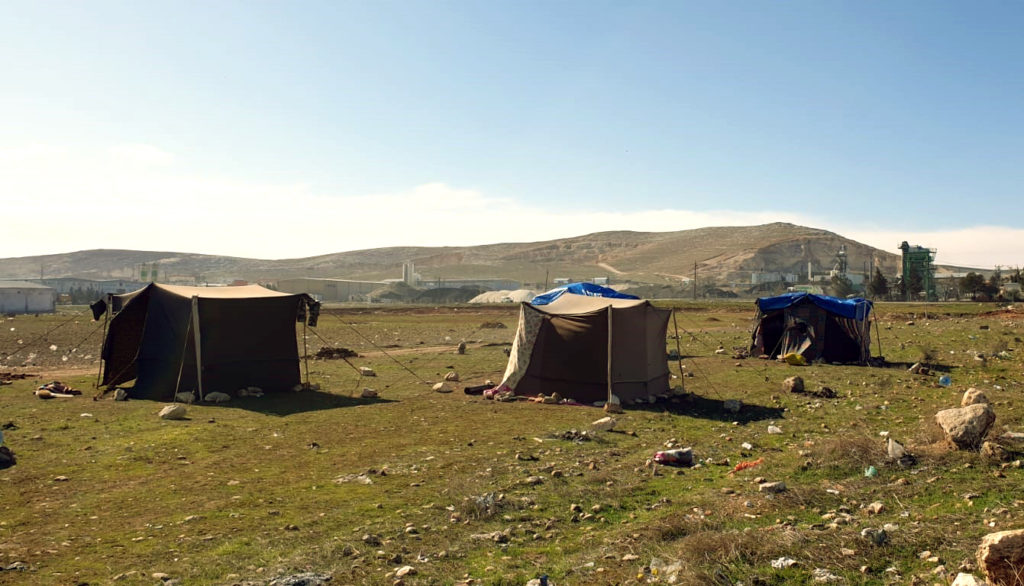 Press Release
Press Release
April 15, 2021 • 4 min read
GOAL is expanding its protection work in Turkey. With €2.5 million continued funding from European Union Humanitarian Aid, the LINK project will reach more than 15,000 people until September 2021 and start offering services to vulnerable people in Mersin Province.
The project called ‘Facilitating marginalized and vulnerable populations access to services (LINK)’’ supports vulnerable nomadic and semi-nomadic refugees and migrant seasonal agriculture workers during the Covid-19 pandemic.
During the first phase of the LINK project from December 2018 to August 2020, GOAL supported 25,910 refugees in Ankara and 14,323 migrant seasonal agricultural workers and refugees from nomadic backgrounds in Adana, Şanlıurfa and Gaziantep with individual protection assistance, community-based outreach, counselling, referrals, vouchers, and in-kind assistance to meet their heating needs in the winter.
LINK Turkey
LINK’s second phase will support beneficiaries through community-based outreach activities and toll-free phonelines. LINK Social Support Centers in Mersin, Adana, Gaziantep and Sanliurfa offer a safe space community members can visit for advice and support on a range of issues, including legal counselling, access to essential services like healthcare, education, legal aid, registration and social assistance and humanitarian aid.

LINK training session with women in Adana
Lorraine Marriot, GOAL’s Regional Director, said: “Extending the reach of tailored humanitarian assistance mechanisms for marginalized refugee communities is key to supporting the equitable and sustainable provision of protection and aid. Thanks to continued funding by the European Union, GOAL seeks to improve access to public services, social assistance, and humanitarian aid programmes for the most vulnerable refugee communities in Turkey’s South and Southeast who may face challenges due to cultural differences or irregular habitation patterns.”
“As the war in Syria enters its 11th year, Turkey still hosts more Syrian refugees than any other country, and the Covid-19 pandemic has hit the most vulnerable among them especially hard. GOAL is a longstanding humanitarian partner of the EU and has played an important role in addressing the needs of the most vulnerable refugees living in rural areas, who are not always visible or easy to reach. The EU continues to support the refugees in need,” says Claudia Amaral, the Head of the EU Humanitarian Aid Office in Turkey.
Turkey currently hosts around four million refugees and asylum seekers from several countries of origin, including 3.6 million Syrians who fled their country in search of safety.
The Government of Turkey has made a wide range of public services and social assistance programmes available to refugees and asylum seeker and granted Temporary Protection status to millions of Syrian citizens who have fled the conflict. While strengthened institutions and localized support mechanisms contribute to extending the reach of protection and assistance, refugees from historically marginalized communities and those that are on the move across rural areas in search of informal work often face difficulties in accessing the services that are available to them.
Migrant seasonal agriculture workers and marginalized communities such as Doms, Abdals, and other nomadic or semi-nomadic groups who have sought refuge in Turkey frequently face challenges in accessing essential services like health, education, social assistance, and humanitarian aid. GOAL’s LINK project aims to ensure that they can access public services more efficiently and benefit from the social assistance programmes implemented by government agencies, civil society, and international organizations more effectively. Livelihood opportunities available to these communities tend to be informal and irregular, and many are paid very low daily wages and live in poor conditions. Women and children often bear the greatest burden, with socioeconomic hardship exacerbating protection risks like forced labor, child marriage, and gender-based violence.

A tent settlement of a semi-nomadic refugee community in Eyyubiye, Sanliurfa
The Impact of Covid-19 on Refugee Communities
GOAL carried out a Covid-19 impact assessment in March 2020, which showed that 70% of those surveyed had lost their income as a result of movement restrictions put in place in Turkey to curb the spread of infection. 68% of those surveyed were not receiving any humanitarian aid, despite being eligible for support. Surveys also revealed that more than 75% of the project beneficiaries GOAL reached with individual protection assistance between December 2018 and June 2020 did not have the means to access public services or social assistance prior to benefiting from the LINK project.
Advocacy Activities to Create Awareness on the Challenges Experienced by Nomadic Refugee Communities
Under the new phase of LINK, GOAL will also work closely with representatives of 70 local, national, and international organisations that implement humanitarian refugee response activities to raise awareness of the challenges experienced by migrant seasonal agriculture workers and refugees from nomadic backgrounds in accessing services.
About EU Civil Protection and Humanitarian Aid:
The European Union and its Member States are the world’s leading donor of humanitarian aid. Relief assistance is an expression of European solidarity with people in need all around the world. It aims to save lives, prevent, and alleviate human suffering, and safeguard the integrity and human dignity of populations affected by disasters and crises.
Through its Civil Protection and Humanitarian Aid Operations department, the European Union helps millions of victims of conflict and disasters every year. With headquarters in Brussels and a global network of field offices, the EU provides assistance to the most vulnerable people on the basis of humanitarian needs.
